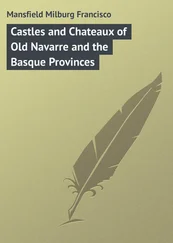John Gerard - The Old Riddle and the Newest Answer
Здесь есть возможность читать онлайн «John Gerard - The Old Riddle and the Newest Answer» — ознакомительный отрывок электронной книги совершенно бесплатно, а после прочтения отрывка купить полную версию. В некоторых случаях можно слушать аудио, скачать через торрент в формате fb2 и присутствует краткое содержание. Жанр: foreign_religion, foreign_antique, foreign_prose, на английском языке. Описание произведения, (предисловие) а так же отзывы посетителей доступны на портале библиотеки ЛибКат.
- Название:The Old Riddle and the Newest Answer
- Автор:
- Жанр:
- Год:неизвестен
- ISBN:нет данных
- Рейтинг книги:4 / 5. Голосов: 1
-
Избранное:Добавить в избранное
- Отзывы:
-
Ваша оценка:
- 80
- 1
- 2
- 3
- 4
- 5
The Old Riddle and the Newest Answer: краткое содержание, описание и аннотация
Предлагаем к чтению аннотацию, описание, краткое содержание или предисловие (зависит от того, что написал сам автор книги «The Old Riddle and the Newest Answer»). Если вы не нашли необходимую информацию о книге — напишите в комментариях, мы постараемся отыскать её.
The Old Riddle and the Newest Answer — читать онлайн ознакомительный отрывок
Ниже представлен текст книги, разбитый по страницам. Система сохранения места последней прочитанной страницы, позволяет с удобством читать онлайн бесплатно книгу «The Old Riddle and the Newest Answer», без необходимости каждый раз заново искать на чём Вы остановились. Поставьте закладку, и сможете в любой момент перейти на страницу, на которой закончили чтение.
Интервал:
Закладка:
7 7 "Value of the Natural History Sciences" ( Lay Sermons ), p. 75." is, I believe, nothing but trained and organized common-sense .
8 8 Italics his.… The man of science, in fact, simply uses with scrupulous exactness, the methods which we all, habitually and at every moment, use carelessly."
There can be no sort of question that so long as men of science really act thus, and confine themselves to the treatment of matters in regard of which they can claim special knowledge, common sense bids us listen to them with respect, and even with submission. But the same common sense requires that we should satisfy ourselves that they truly deserve the character assigned them, and pretend to no knowledge on the score of Science but what their scientific methods are competent to acquire. When they step beyond this their own proper domain, whatever weight may be given to their opinions upon other grounds, they cease to speak in the name of Science.
What then, we must ask, is the province of Science, and what are her methods?
"Science," always understanding by the term physical or experimental Science, deals with the universe so far as it is known to us through our senses. The universe known thus we call "Nature," and the whole stock in trade of Science is the examination and verification of natural phenomena, with such inferences therefrom as ascertained facts legitimately suggest. From careful and trustworthy observation she can learn what are called the "Laws of Nature," that is to say the manner in which the various elements and forces of the universe are found constantly to act, in given circumstances; she can, to some extent, discover the chain of causes and effects, or more properly of conditions and consequences, through which natural operations are carried on. She can even construct hypotheses as to what she cannot directly observe, namely, the nature of substances and forces; and such hypotheses are justified in proportion as they are found to tally with facts. If constantly thus justified, they are styled theories, and come to be practically assumed as established truths. But it must ever be remembered that Science can take no step in advance which is not based on fact, and that when facts are not forthcoming for its support an hypothesis or a theory has no scientific value.
Bearing this in mind, we will proceed to enquire what Science has to tell us regarding the origin of the world, and the manner in which it has come to be what it is.
III
"EVOLUTION"
WE are constantly assured that Science compels us to believe in "Evolution," and that in this doctrine is to be found the explanation of the universe whereof we are in quest. We must however in the first place make sure that we understand what "Evolution" means, and if we look into the question, it speedily appears that the term is very differently understood by those who use it.
Some who style themselves "Evolutionists" mean only that, as a matter of established fact, the organic world, the world of life, whether animal or vegetable, has been brought to its present condition by genetic development of one species from another, in the natural course of descent and through the operation of natural laws; and that as we see plants and animals of the same kind propagated one from another at the present day, so in the course of long ages the lower and simpler forms of life have given birth to the higher and more complex.
Others again do not limit this process to organic creatures, and believe that from first to last, the whole world, inorganic and organic alike, has resulted from the action of forces such as those with which Science deals; and that life has thus arisen in purely natural course out of non-living matter, the universe in its original condition having been constituted as a vast machine which was bound to produce all that has since arisen.
In either of the above senses – of which the second obviously includes the first, – "Evolution" is understood as no more than a process which is said to have occurred. But there is a more extreme school which takes "Evolution" for much more, namely for a power, principle, or "law," which both governs and accounts for everything, and requires no further cause beyond itself.
If this paramount "Law of Evolution" can be established, there is clearly an end of our enquiry, for here is the ultimate explanation of everything which we are seeking. But what has Science to say concerning it?
IV
"THE LAW OF EVOLUTION"
THAT there is a self-existing and self-sufficing "Law of Evolution" to which everything in the world must be ascribed, is the doctrine of those Evolutionists who are most active in propagating their creed and who most loudly proclaim that it alone is scientific. The great leader and prophet of this school, Professor Ernst Haeckel, assures us 9 9 Confession of Faith of a Man of Science , English translation, 1903, Preface, p. vii.
that he gives expression,
to that rational view of the world which is being forced upon us with such logical rigour by the modern advancements in our knowledge of nature as a unity, a view in reality held by almost all unprejudiced and thinking men of science, although but few have the courage (or the need) to declare it openly.
The plain and rational conclusion thus exhibited is, he tells us, 10 10 Riddle of the Universe , Cheap English Edition, p. 2.
the special glory of modern research.
It is true [he writes] that there were philosophers who spoke of the evolution of things a thousand years ago; but the recognition that such a law dominates the entire universe, and that the world is nothing else than an eternal "evolution of substance," is a fruit of the nineteenth century.
So far as concerns the world which we actually inhabit, its first beginning, we must, he tells us, suppose 11 11 ibid. , p. 85.
to have been a vast nebula of infinitely attenuated and light material, rotating upon its own axis. 12 12 And also, it should be added, travelling bodily through space with a movement of "translation."
Интервал:
Закладка:
Похожие книги на «The Old Riddle and the Newest Answer»
Представляем Вашему вниманию похожие книги на «The Old Riddle and the Newest Answer» списком для выбора. Мы отобрали схожую по названию и смыслу литературу в надежде предоставить читателям больше вариантов отыскать новые, интересные, ещё непрочитанные произведения.
Обсуждение, отзывы о книге «The Old Riddle and the Newest Answer» и просто собственные мнения читателей. Оставьте ваши комментарии, напишите, что Вы думаете о произведении, его смысле или главных героях. Укажите что конкретно понравилось, а что нет, и почему Вы так считаете.












